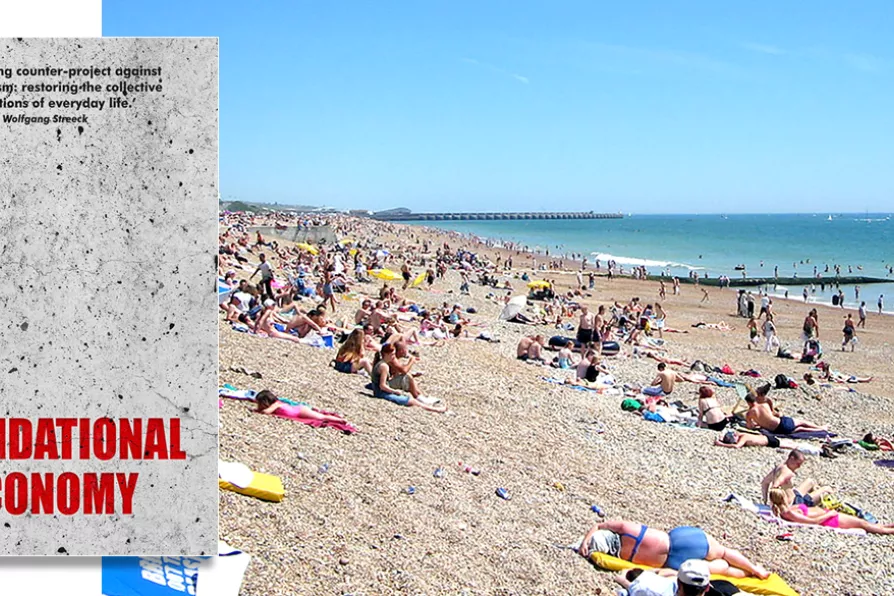RITA DI SANTO draws attention to a new film that features Ken Loach and Jeremy Corbyn, and their personal experience of media misrepresentation

 BRIGHTON BEACH: Occasional 'culturally required' purchases, such as a holiday
[G-Man/CC]
BRIGHTON BEACH: Occasional 'culturally required' purchases, such as a holiday
[G-Man/CC]
Foundational Economy: The infrastructure of everyday life
by The Collective Foundational Economy
Manchester University Press £11.99
THE opening chapters of this book reminded me of president John F Kennedy’s trenchant and moving attack on the idea that a country’s progress can be judged by GDP figures. The Gross Domestic Product, he said “measures everything... except that which makes life worthwhile.”
Many proposals to re-focus economy theory and policy away from national income accounting have been published. In this case the focus is the “foundations” of an economy – consisting of zones “producing daily essential goods and services which are critical to citizens flourishing.”
There are three main areas: the “material” Foundational Economy (FE) consists of those pipes and networks “which continuously connect households to everyday life including water, electricity, food, transport and telecoms.”

If the government really wanted to address public finances, improve living standards and begin economic recovery, it would increase its borrowing for investment, argues MICHAEL BURKE

When privatisation is already so deeply embedded in the NHS, we can’t just blindly argue for ‘more funding’ to solve its problems, explain ESTHER GILES, NICO CSERGO, BRIAN GIBBONS and RATHI GUHADASAN












